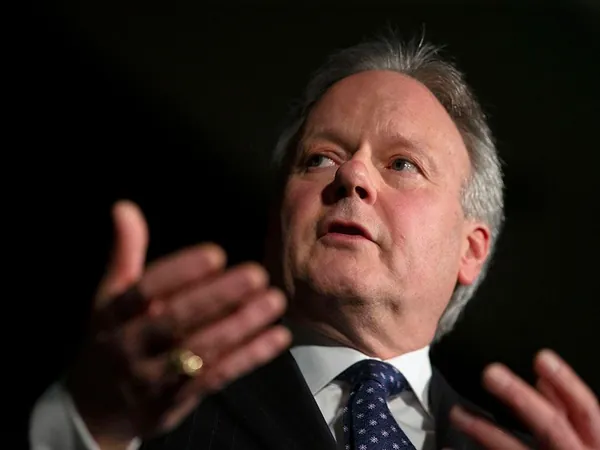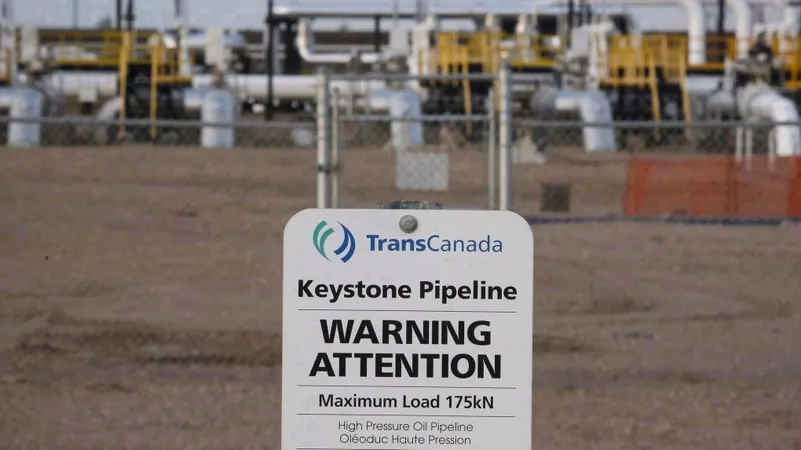
Is Canada Really in a Recession? Former Bank of Canada Governor Stephen Poloz Sounds the Alarm!
2024-12-04
Author: Amelia
Introduction
According to Stephen Poloz, the former governor of the Bank of Canada, the nation is currently experiencing a recession, albeit one that is being obscured by robust population growth. During a recent webinar, Poloz stated emphatically, "I would say we’re in a recession, I wouldn’t even call it a technical one." He clarified that while Canada has not officially entered a technical recession—a term often defined by two consecutive quarters of negative GDP growth—the economic struggles are evident despite increases in immigration leading to heightened consumer spending.
Economic Indicators
This alarming assessment comes on the heels of a report from Statistics Canada revealing that the gross domestic product per capita has decreased for the sixth consecutive quarter, marking a troubling trend of negative growth in eight out of the last nine quarters. While the economy showed a slight 2.1 percent growth in the second quarter, it plummeted to just one percent in the third quarter, indicating a struggle to maintain momentum.
Impact of Inflation
Poloz highlighted the significant impact inflation has had on Canadian consumers, who have faced a staggering 30 percent rise in living costs. This inflationary pressure has, in turn, reduced discretionary spending, raising concerns about the overall health of the economy. What's even more disconcerting is that Poloz noted, "inflation has fallen faster than was predicted, which typically only occurs during a recession."
U.S. Trade Policy Concerns
The potential ramifications of U.S. trade policy add another layer of uncertainty to Canada’s economic landscape. Incoming U.S. president Donald Trump's threats to impose a 25 percent tariff on Canadian imports could significantly harm the Canadian economy, with estimates suggesting a potential 2.6 percent decrease in Canada’s GDP if such tariffs are enacted. Such a move would not only create inflationary risks but could also compel central banks to maintain higher interest rates even as economic growth falters, setting the stage for deeper stagflation.
Government Measures
In a bid to stimulate consumer spending, the Canadian federal government has rolled out a temporary suspension of the goods and services tax on select items. However, Poloz cautioned that while this initiative may provide some immediate relief to households, it won’t address the lingering structural issues within the economy. He compared this measure to "giving somebody a fish instead of giving them a fishing rod," emphasizing the need for more sustainable economic strategies to foster long-term growth.
Conclusion
As the economic situation evolves, Canadians are left grappling with rising costs and the uncertainties surrounding their nation’s financial future. With expert voices like Poloz warning of potential recessionary indicators, citizens and policymakers must remain vigilant and proactive in navigating this turbulent economic landscape.









 Brasil (PT)
Brasil (PT)
 Canada (EN)
Canada (EN)
 Chile (ES)
Chile (ES)
 España (ES)
España (ES)
 France (FR)
France (FR)
 Hong Kong (EN)
Hong Kong (EN)
 Italia (IT)
Italia (IT)
 日本 (JA)
日本 (JA)
 Magyarország (HU)
Magyarország (HU)
 Norge (NO)
Norge (NO)
 Polska (PL)
Polska (PL)
 Schweiz (DE)
Schweiz (DE)
 Singapore (EN)
Singapore (EN)
 Sverige (SV)
Sverige (SV)
 Suomi (FI)
Suomi (FI)
 Türkiye (TR)
Türkiye (TR)